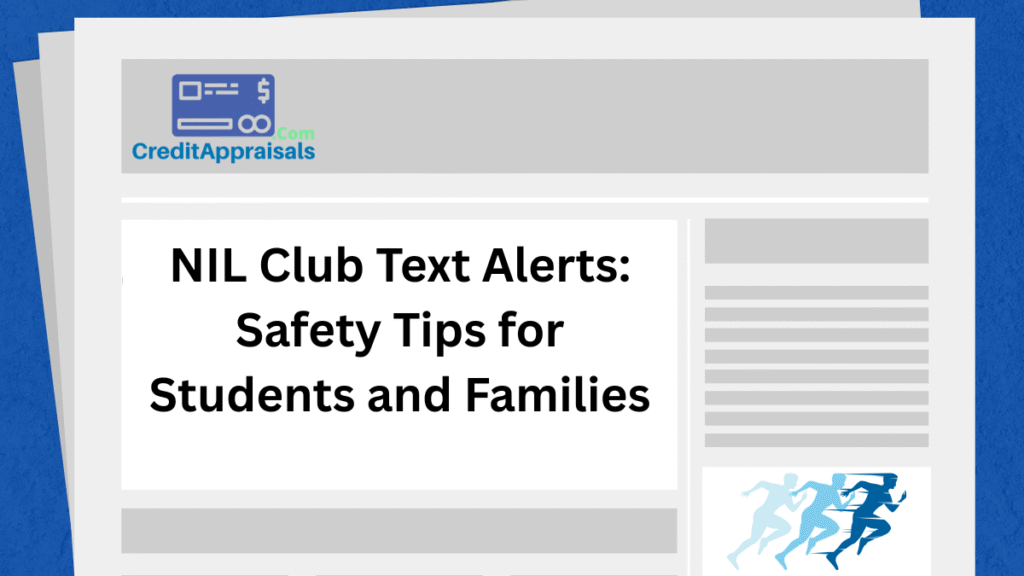When NIL Club first opened its doors to high school students, it sparked excitement, curiosity, and confusion. The idea of teenagers earning money through their Name, Image, and Likeness was groundbreaking. But it also raised eyebrows, especially among school administrators and parents trying to protect their students.
School officials took a cautious approach, issuing public notices to inform families about messages they believed could be misleading. Headlines such as “District warns families of NIL scam targeting athletes” quickly circulated, prompting concern and encouraging families to stay informed.
We have reviewed both sides of the story. And while we can’t confirm whether every message was a case of impersonation, what’s clear is that the NIL Club app is a legitimate platform helping student-athletes.
What Is NIL Club and How Does It Work?
NIL Club is a platform designed to help students and athletes monetize their personal brand. It allows students to receive support directly from fans, family, and the community. Think of it as a digital community where each team can create a club, post updates, and earn income through running an online business.
NIL Club has grown into a national platform with more than 250,000 student-athletes participating. According to their website, those students have collectively earned over $16 million.
When you receive a text about the NIL Club app, it’s usually from a student or athlete club member inviting you to sign up, notifying you about their club’s launch, or asking for your support. These messages are short, friendly, and will only include links that point to NILclub.com or related URLs from the verified NIL Club platform.
What Does a Real NIL Club Text Look Like?
Here’s what to expect in a NIL Club message:
- The message will reference your school or sport, which shows it was sent intentionally.
- You will be directed to the official NILclub.com website or app.
- If there’s a QR code, it will lead you to your dashboard or NIL Club homepage.
- The tone is professional but friendly, and there are no spelling errors.
If you ever receive a message that promises huge cash rewards just for clicking a link, block the sender.
How to Spot Fake NIL Club Messages
Scammers try to take advantage of athletes who are excited about NIL opportunities. They use the popularity of NIL Club and similar platforms to gain your trust. These fake messages often include unrealistic promises, such as free money, free merchandise, or instant approval for big brand deals.
Here are some red flags:
- The sender uses phrases like “instant money for athletes.”
- You’re asked to send money or provide personal banking information.
- The message contains bad grammar or strange formatting.
If something feels off, visit NILclub.com directly and contact support through the website to verify the message.
How NIL Club Has Actively Responded
One of the strongest signs that NIL Club is addressing concerns is its recent partnership with the Louisiana High School Athletic Association. Rather than bypassing official oversight, NIL Club has chosen to collaborate directly with state organizations to ensure compliance.
YOKE, the company behind NIL Club, has said it plans to expand this approach to every state where high school NIL activity is allowed. They’ve even gone a step further by geofencing the app so that students in states without NIL regulations can’t access it.
This level of transparency shows a clear commitment to doing things the right way and protecting young students. Success comes from consistent, authentic content. NIL Club encourages club members to stay active and engaged to build meaningful, long-term supporters.
Phishing and Spam Prevention
Phishing and scam messages are a real concern, especially for high school students excited about NIL opportunities.
The creators of the NIL Club app have built a detailed help center filled with clear, easy-to-follow tips on how to spot phishing attacks, avoid fraudulent activities, and protect sensitive information.
Tips for Staying Safe
If you’re a student-athlete or parent, here are some simple tips to stay protected:
Make sure you’re on the real NILclub.com website. Bookmark it so you don’t accidentally click a fake link. NIL Club messages are peer-to-peer, sent by real student-athletes to teammates and classmates, but it’s still important to stay alert. Never send personal documents like your ID, Social Security number, or bank credentials over text or email. NIL Club will never ask for that kind of information. Use two-factor authentication when setting up your account, and create a strong password.
NIL Club texts come directly from other verified student-athletes. If a message seems suspicious, report it to your school and to NIL Club. NIL Club takes every report seriously and actively works to stop impersonators.
Final Thoughts
The team has responded quickly and responsibly, building a clear help center, strengthening user education, and verifying communication channels. They have adapted to evolving regulations and continue to listen to user feedback.
If we are going to discuss NIL in high schools, we need to do it honestly. NIL Club remains one of the most athlete-focused and transparent platforms available today.

